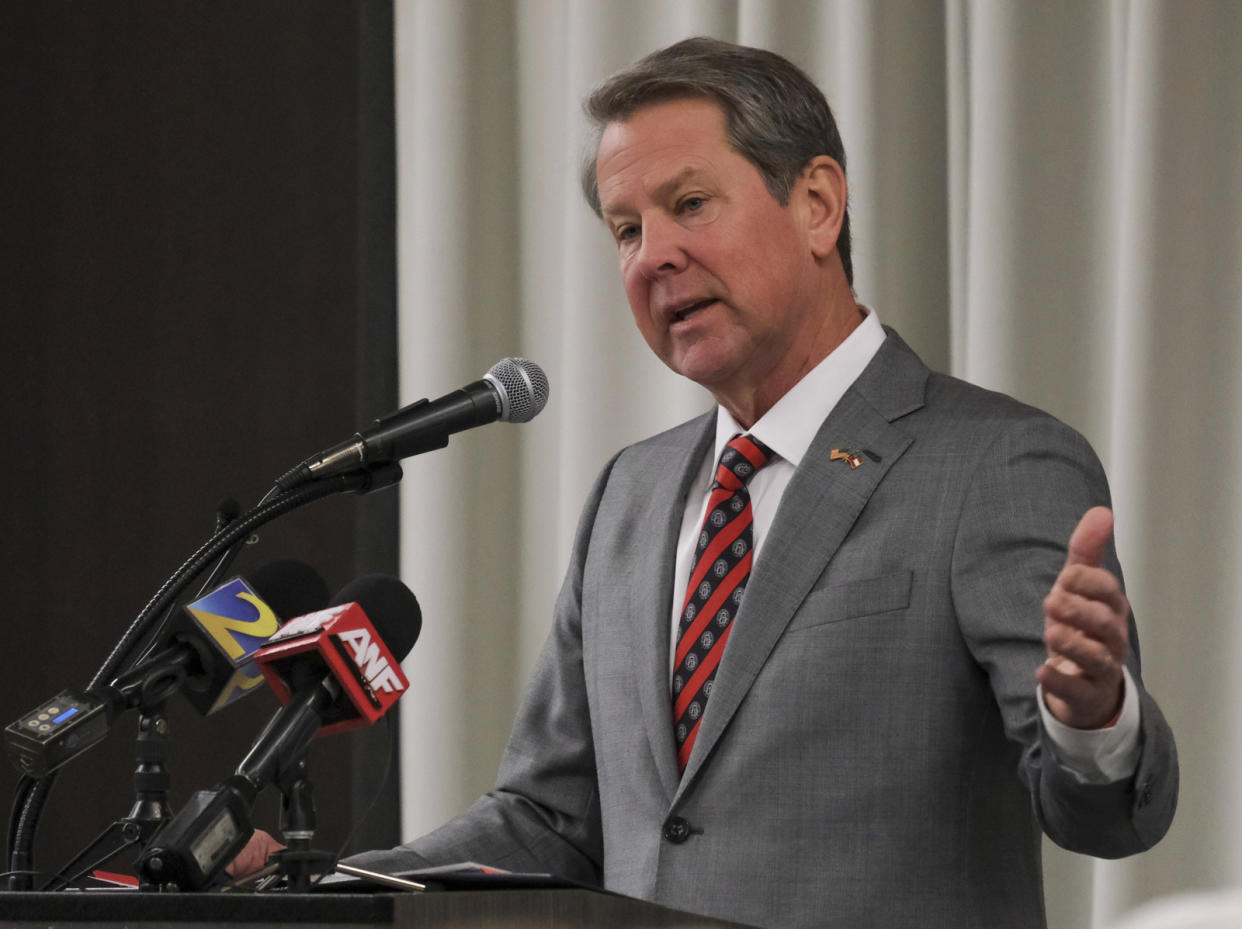Georgia governor signs law requiring jailers to check immigration status of prisoners

- Oops!Something went wrong.Please try again later.
ATLANTA (AP) — Jailers in Georgia must now check the immigration status of inmates and apply to help enforce federal immigration law, under a bill that gained traction after police accused a Venezuelan man of beating a nursing student to death on the University of Georgia campus.
Gov. Brian Kemp signed the bill into law Wednesday at the Georgia Public Safety Training Center in Forsyth. Most provisions take effect immediately.
The Republican governor signed a separate law that requires cash bail for 30 additional crimes and restricts people and charitable bail funds from posting cash bonds for more than three people a year unless they meet the requirements to become a bail bond company. That law takes effect July 1.
Kemp said Wednesday that the immigration bill, House Bill 1105, “became one of our top priorities following the senseless death of Laken Riley at the hands of someone in this country illegally who had already been arrested even after crossing the border.”
Jose Ibarra was arrested on murder and assault charges in the death of 22-year-old Laken Riley. Immigration authorities say Ibarra, 26, unlawfully crossed into the United States in 2022. It is unclear whether he has applied for asylum. Riley's killing set off a political storm as conservatives used the case to blame President Joe Biden for immigration failings.
“If you enter our country illegally and proceed to commit further crimes in our communities, we will not allow your crimes to go unanswered,” Kemp said.
Opponents warn the law will turn local law enforcement into immigration police, making immigrants less willing to report crime and work with officers. Opponents also point to studies showing immigrants are less likely than native-born Americans to commit crimes.
The law lays out specific requirements for how jail officials should check with U.S. Immigrations and Customs Enforcement (ICE) to determine whether prisoners are known to be in the country illegally. Georgia law previously only encouraged jailers to do so, but the new law makes it a misdemeanor to “knowingly and willfully” fail to check immigration status. The bill would also deny state funding to local governments that don’t cooperate.
The law also mandates that local jails apply for what is known as a 287(g) agreement with ICE to let local jailers help enforce immigration law. It is unclear how many would be accepted because President Joe Biden’s administration has de-emphasized the program. The program doesn’t empower local law enforcement to make immigration-specific arrests outside a jail.
Republicans said Senate Bill 63, requiring cash bail, is needed to keep criminals locked up, even though it erodes changes that Republican Gov. Nathan Deal championed in 2018 to allow judges to release most people accused of misdemeanors without bail.
“Too many times we have seen some of our cities or counties, it’s been a revolving door with criminals," Republican Lt. Gov. Burt Jones said.
Supporters said judges would still have the discretion to set very low bails. A separate part of the 2018 reform requiring judges to consider someone’s ability to pay would still remain law.
But the move could strand poor defendants in jail when accused of crimes for which they are unlikely to ever go to prison and aggravate overcrowding in Georgia’s county lockups.
It’s part of a push by Republicans nationwide to increase reliance on cash bail, even as some Democratic-led jurisdictions end cash bail entirely or dramatically restrict its use. That split was exemplified last year when a court upheld Illinois’ plan to abolish cash bail, while voters in Wisconsin approved an amendment to the constitution letting judges consider someone’s past convictions for violent crimes before setting bail.

